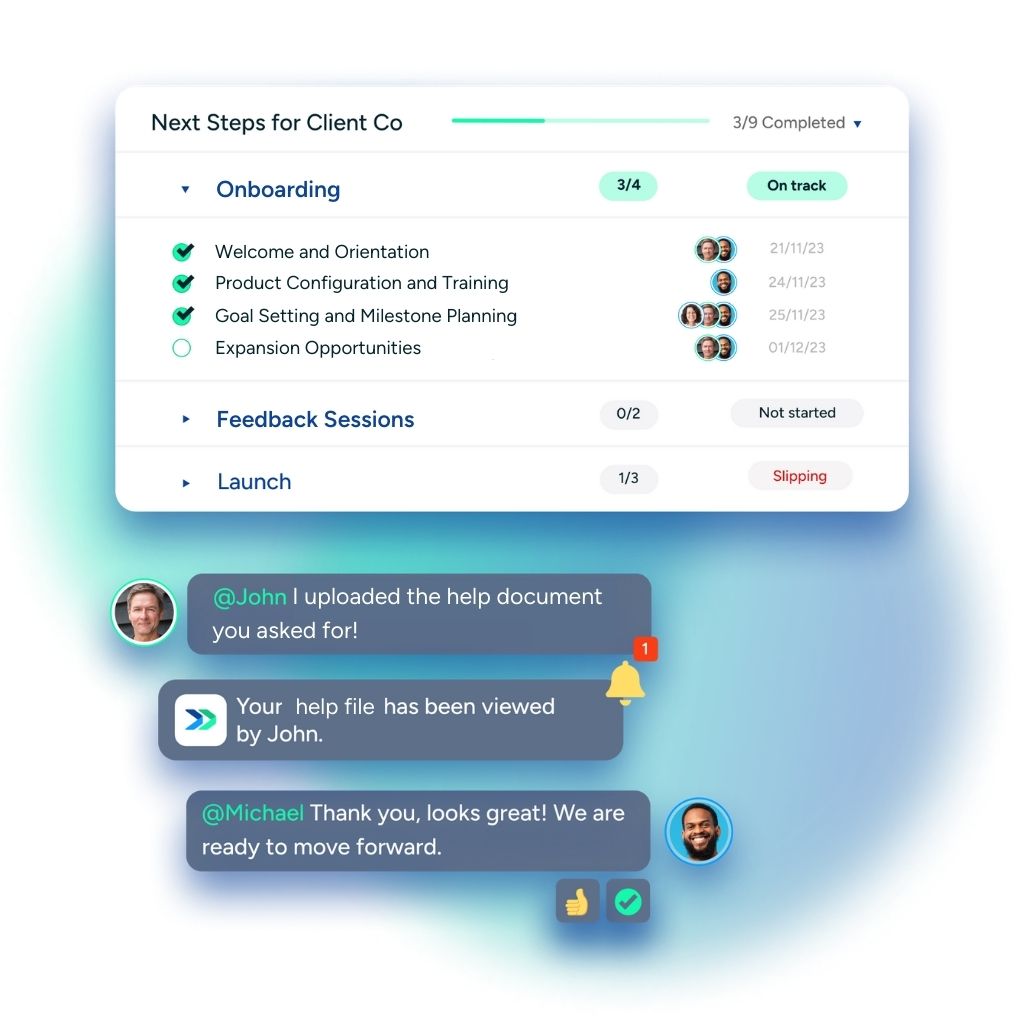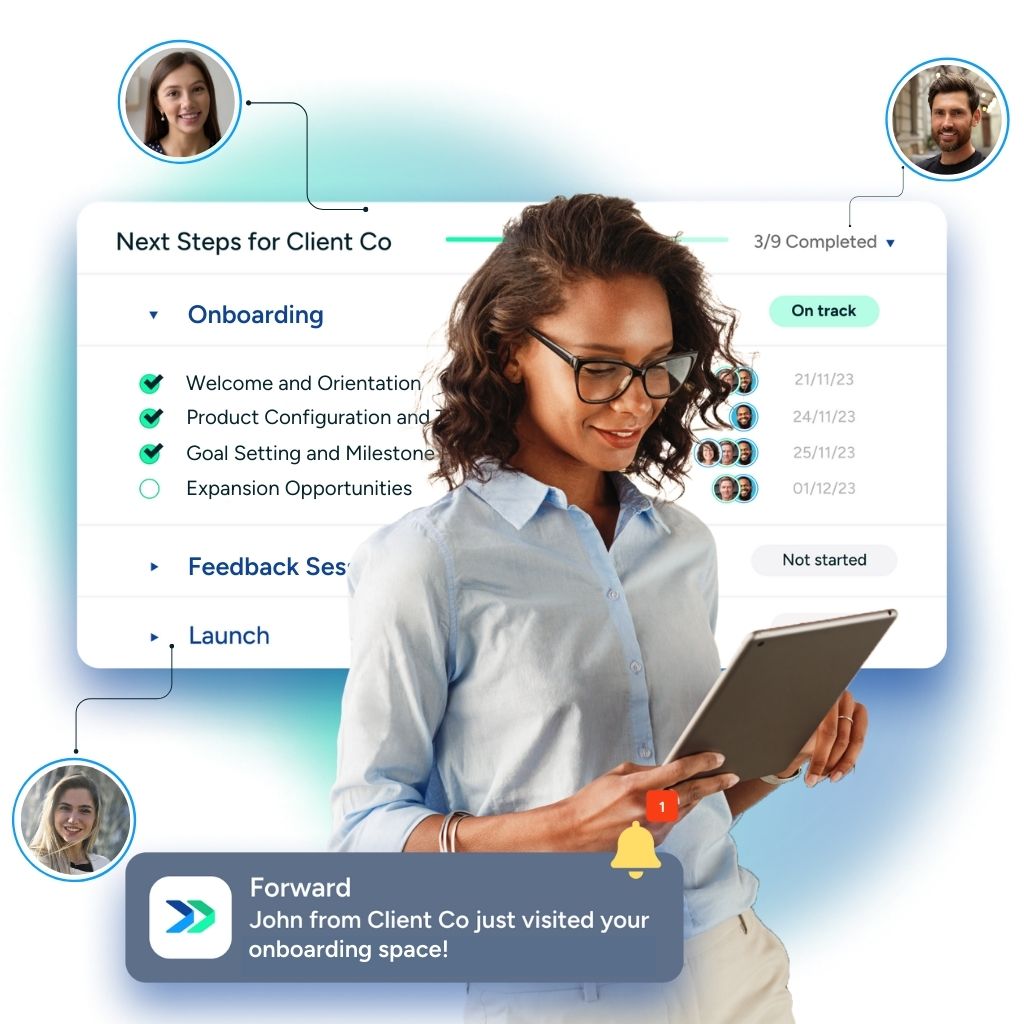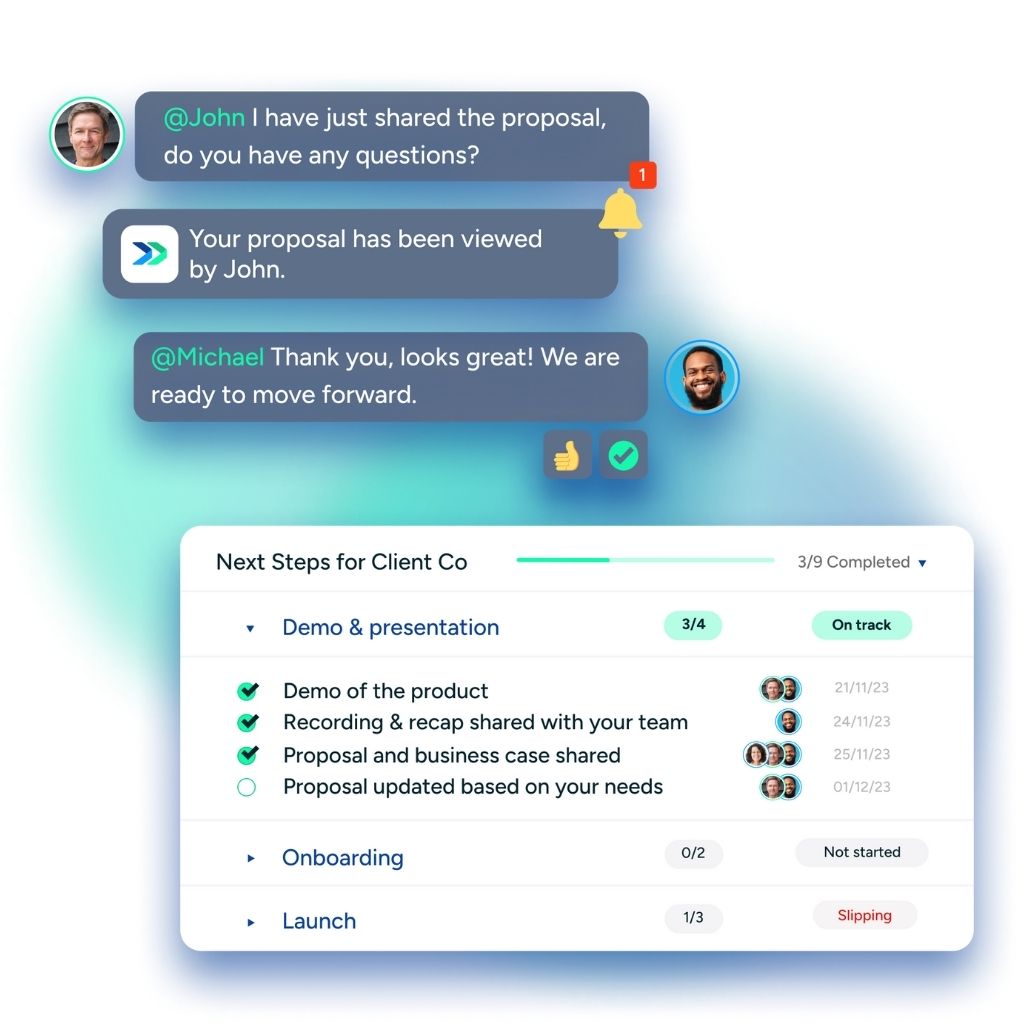Sales close plan
What is a close plan?
In essence, it's a proactive strategy to address potential roadblocks and accelerate the journey from negotiation to deal closure.

What do people think about Forward's sales close plans?
3 reasons to use a sales close plan

4 Tips for creating an effective sales close plan





Frequently asked questions
A sales close plan provides a clear roadmap of the closing process, detailing steps and responsibilities. This transparency fosters trust by keeping both internal teams and clients informed and engaged.
Strategic Focus: Provides a strategic focus on the final stages of the sales process, ensuring a targeted approach toward successfully closing deals.
Clear Objectives: Clearly defines the objectives and desired outcomes, guiding sales professionals on the specific actions needed for successful closures.
Improved Communication: Enhances communication within the sales team by establishing a common understanding of the closing strategy and milestones.
Risk Mitigation: Identifies potential obstacles or objections in the closing process, allowing for proactive measures to address and overcome challenges.
Increased Accountability: Assigns responsibilities and tasks, fostering individual and team accountability for meeting closing goals.
The main purpose of a sales close plan is to provide a systematic and organized approach for the final stages of a sales cycle. It outlines the specific steps, actions, and strategies required to successfully close a deal, ensuring that sales professionals have a clear roadmap to follow and increasing the likelihood of converting leads into customers.
Define Closing Criteria: Clearly outline the criteria that indicate a prospect is ready to be closed, ensuring alignment with the customer's needs and expectations.
Identify Decision-Makers: Identify and understand key decision-makers involved in the closing process to tailor the approach accordingly.
Timeline: Establish a timeline that includes key milestones and deadlines for closing activities, providing a sense of urgency and focus.
Utilize Closing Techniques: Implement effective closing techniques and strategies based on the unique characteristics of the prospect and the deal.
Regular Review: Regularly review and adapt the close plan based on feedback, changing circumstances, or new information obtained during the closing process.
Team Collaboration: Foster collaboration within the sales team, ensuring that everyone is aligned with the close plan and working towards a successful deal closure.





